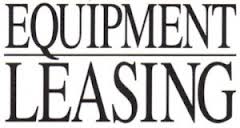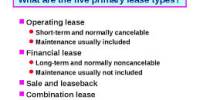Who or what is a leasing company?
Leasing in Bangladesh is a “financial business” and cannot be carried on except in terms of a license granted by Bangladesh Bank.
Sec. 4 of the Financial Institutions Act prohibits any person or institution from carrying any “financial business” in Bangladesh except in accordance with a license granted by the Bank.
Sec. 2 (1) defines “financial business” as the business carried on by a financial institution. “Financial institution” as defined in sec. 2 (2) includes a leasing company.
“Leasing company” is defined in sec. 2 (17) of the Act as a company, which carries on as its business or part of its business hiring of plant or equipment, or the financing of such hiring business.
A first look at the definition suggests that even if a company, otherwise engaged in a manufacturing or non-financial activity, carries on a leasing activity as a part of its business, such company would be treated as a “financial institution” under the Act. This, however, could not be intent of the lawmaker as demonstrated later. The use of the words “part of its business” in sec. 2 (17), not found in definitions of other varieties of financial institutions in the Act, seems to be a surpluses and cannot lead to a technical extension whereby even a single lease transaction by a non-leasing company would bring such company under the fold of the Act.
The central definition in the Act is the definition of “financial institution” in sec. 2 (2). It is defined as “such non-banking financial institution, which is engaged in…..”. Apparently, what sec. 2 (2) enumerates are categories of financial activities such as lending or giving of advances, merchant banking, venture capital, leasing, Investment Company, etc. The definition is not divested of the element of principality of such business in order to characterize a company as a financial institution. For example, giving of loans or advances is a financial business. But that cannot be taken to mean that a manufacturing company, which in case of a short-term surplus in its business, grants a loan to someone, will be treated as a “financial institution”. In other words, the principal business of an entity should be one of the several financial businesses listed in sec. 2 (2).
This would mean that the ban under sec. 4 of the Act on carrying any “financial business” should be understood as a ban on carrying such business as a principal business. Such an understanding is very important, since there are ample opportunities to extend leasing activities to non-leasing or unlicensed entities as follows:
In many markets, leasing has flourished because of its tax appeal: leasing has been organized for high-net worth individuals to shelter against their taxes. That is, a high net worth individual may do one lease transaction, not as his principal business, and shelter his taxes. In many cases, an individual may participate in a lease syndicate organized by a leasing company.
Restricting leasing to only leasing companies would eliminate any possibility of leasing activities being carried, on a one-off basis, by manufacturing or non-financial companies. This is a common practice in many countries. A non-leasing company, say a hotel, would carry one lease transaction and shelter against its taxes.
As leasing markets develop, leasing by vendors or manufacturers would become common. That is, the manufacturer of capital goods will be prepared to provide his own product on lease, instead of selling it directly. Obviously, such manufacturer cannot be treated as a “financial institution.”
Securitisation of lease receivables is a very important development in leasing markets. In strict sense, securitisation means participation in leasing transaction by the participants in the securitised portfolio. A literal ban on “financing of a leasing transaction” would inherently imply a ban on participation in a securitised portfolio as well.
















